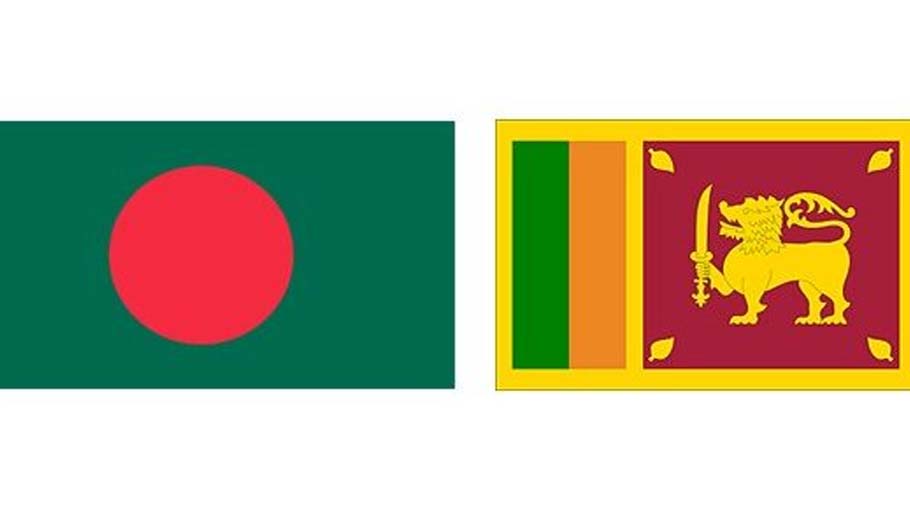Bangladesh won’t face Sri Lanka-like situation

The recent economic and political meltdown in Sri Lanka has been a significant talking point in neighboring countries including Bangladesh. There has been a lot of talk about this problem since early 2022. There are two sections to this analysis. The first step was taken when the Sri Lankan government declared bankruptcy in February and March of this year. As a result of the severe economic downturn, the government was forced to file for bankruptcy. People similarly took to the streets due to a dramatic rise in the cost of petrol and staple foods. The outcome was enormous demonstrations that ultimately led to the resignation of the country's President and prime minister.
Former President Mahinda Rajapakse stepped down, and his brother Gotabaya Rajapakse was subsequently elected in his place. After being elected President, he immediately made Ranil Wickramasinghe his Prime Minister. After being sworn in as Prime Minister, Ranil Wickremesinghe promptly resumed negotiations with many nations and international institutions, notably the International Monetary Fund (IMF), to help Sri Lanka's flagging economy. However, after almost three months, he had not taken any constructive economic action, and the people again came to the streets. Therefore, there was civil upheaval in Sri Lanka again. This time, the center of the uprising was at the presidential and prime ministerial house. All they asked was for the President and prime minister to step down. As soon as he found out, the President fled the palace. After his attempts to leave the country through the airport and sea were unsuccessful, he boarded a military jet and escaped to the nearby Maldives.
All opposition political parties
should understand that positive
action is the key to gaining support
In recent months, Bangladesh's opposition political parties and a segment of civil society have been encouraged by developments in Sri Lanka to anticipate that Bangladesh is going towards a status comparable to that of Sri Lanka in terms of its economy. They thought that the people of Bangladesh, like those in neighboring Sri Lanka, would similarly go to the streets to topple the government. However, none of their illogical expectations came true. Since the economic collapse in Sri Lanka, the Awami League government led by the honorable Prime Minister has argued that the economies of Sri Lanka and Bangladesh are different.
Development assistance agencies in Bangladesh have repeatedly indicated that there is no rationale for the situation in Bangladesh to be analogous to that in Sri Lanka. Someone who would come up with such a drivel would have to be acquainted with the stark contrast between the economies of Bangladesh and Sri Lanka. The tourist sector is a significant contributor to Sri Lanka's GDP. The Covid-19 outbreak has devastated Sri Lanka's tourist business in the last two years. In response, the government ramped up petroleum and other commodity imports, causing a decline in the country's foreign currency reserves. There was a time when the government had to stop all imports. Therefore, there was a great deal of public ire.
Our foreign currency reserves are in a considerably better position than other nations. However, the primary pillar of Bangladesh's economy is garments and foreign exchange sent by ex-pats. In the early phases of the Covid-19 outbreak, many thought that remittances to Bangladesh would fall since many ex-pats lost their employment in the early stages. However, owing to the diplomatic success of the government, Bangladeshi employees have returned to their job in a short time and are sending foreign exchange at the same rates. Moreover, the Bangladesh government does not have to spend a lot of foreign currency to pay the loan instalments that it has obtained from different international organisations to fund the expenditures of development initiatives. In our country, loan payments are pretty low compared to Sri Lanka.
Given the existing circumstances, a similar economic crisis like that which befell Sri Lanka is thus impossible in Bangladesh. The corruption of the Sri Lankan monarch and his family members reached extreme heights, yet the government did little to stop it. Many individuals were outraged as a consequence. Despite claims of corruption in specific circumstances, no such environment has been developed in Bangladesh. Furthermore, the Hon'ble Prime Minister of Bangladesh and her family have not been subjected to similar claims. For this reason, no public outcry has been registered about this matter. It is safe to assume that Bangladesh will not have a similar crisis to that experienced in Sri Lanka.
The mass movement in Sri Lanka and the social media demonstrations in Egypt a few years ago has enabled the opposition parties to dream that the people of Bangladesh may very soon mobilise against the government and remove them from power. Their dream will stay a dream. When we compare the situations in Egypt and Sri Lanka, we can see that the people in both nations were cornered. The people of Bangladesh are not in such an economic crisis that they have to come to the streets and protest against the government. It's important to note that the Covid-19 pandemic has been wreaking havoc on the global economy over the last two years.
Hon'ble Prime Minister of the Government of Bangladesh and her foresight, we have been able to effectively combat the health concerns posed by Covid-19, just as we have established a stable economic base. In the wake of Covid-19, a worldwide economic crisis unfolded. Given this, reform must be enacted to revamp the nation's financial system. It is encouraging to note that the government and Bangladesh Bank have initiated many economic reforms since the global crisis to save our economy. As a result, it's very improbable that the opposition's hope of dragging down the government through public outcry would soon come true in Bangladesh.
There are two primary mechanisms through which a country's government might undergo a transition. Voting is one method, while mass demonstrations are another. There is no doubt that the people of Bangladesh would vote for the Awami League in the next elections in light of the substantial progress made by the government under the leadership of Sheikh Hasina over the last thirteen and a half years. Additionally, the existing opposition parties lack the necessary organisational strength to take power in an election. The opposition political party in Bangladesh has lost support because it has been out of power for too long and has failed to inspire the country with extraordinary visions. With this in mind, the opposition parties attempt to bypass the electoral process and seize power through alternative means.
However, Bangladesh has no such worry since the people have faith in the present leadership. The government has not done anything immoral in the nation that would warrant a public uprising. The opposition parties have no way of rallying the masses to oppose the government. They are, however, attempting to mislead the public using different forms of propaganda. Bangladeshis, though, won't swallow that fib at its value.
To be successful in politics, opposition parties and coalitions need to accept reality. The situation is that the opposition has moved far away from the central of Bangladeshi politics. So, they need to earn the public's trust and use their political power for the sake of the populace. The fantasy of people who see illusions that such an event will occur in Bangladesh, bearing in mind the problem that has occurred in any country, will never come true.
Therefore, all opposition political parties should understand that positive action is the key to gaining support.
The author is a Professor at the Department of Public Administration, University of Rajshahi.



